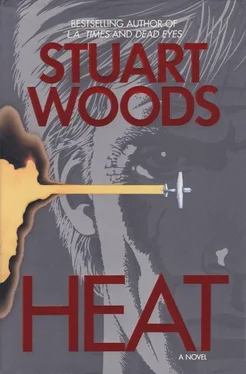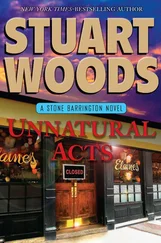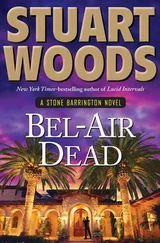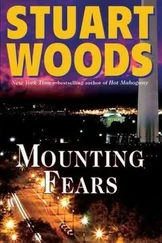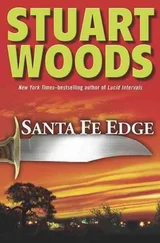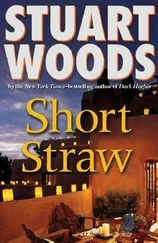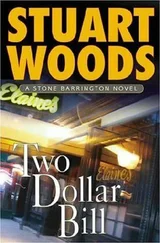Jesse tried looking amazed. “Why on earth would you think I’m a cop?”
Casey slapped him on the back. “Never mind, it’s not important. You better get on home for dinner.”
“Okay, see you later.”
“Goodnight, Jesse.”
Jesse walked out of the station into the cool night air, breathing deeply. He got into his truck and started for home, nearly limp with relief. Then he had a disturbing thought: what if Pat Casey were a better polygraph operator than he’d let on?
When Jesse had left the station, Casey called Jack Gene Coldwater.
“How’d it go?” Coldwater asked.
“There were two anomalies that might be important,” Casey replied. “First, I got a reaction when I asked if he were an escaped convict, but judging from his other answers, I think that was a fluke. No ex-con would have a sheriff in his hometown vouching for him.”
“And the other?”
“I think maybe he once killed somebody.”
“Natural enough to lie about that,” Coldwater said. “Is he who he says he is?”
“The polygraph says yes. Oh, and he admitted to sleeping with Jenny.”
Coldwater laughed. “Well, at least we know he’s not queer.”
Jesse stood at the kitchen counter opening the wine while Jenny put dinner on the table. He poured a little wine into a glass and tasted it.
“Where’d you learn to do that?” she asked.
“Oh, I’ve been to a good restaurant or two, you know.”
“You have? Where?”
“Atlanta, mostly, and, of course, New York.”
Her eyes widened. “You’ve been to New York?”
“I’ve been around.”
“Why in the world would you have gone to New York?”
Jesse thought fast. “I went to a builder’s show at the Coliseum, once. Spent nearly a week up there.”
“What’s it like?”
“Why don’t you find out for yourself?”
She put her arms around his waist and hugged him. “I’d love to.”
“You mean it?”
“I do.”
“Shall we take Carey?”
“No, not if it means missing school.”
“It would, I’m afraid.” He wasn’t afraid at all; he looked forward to having her all to himself in the big city.
“The school frowns on kids missing a day for any reason.”
“Can she stay with a friend?”
“I’m sure she can. Come on, let’s eat.” She called Carey to dinner and sat down. She had cooked steaks, his favorite.
Jesse tore into his dinner.
“Can I have some wine?” Carey asked.
Jenny looked shocked. “Certainly not, young lady. Not until you’re twenty-one!”
“Aw...”
“Carey, would you like to stay with Harriet Twomy for a few days next week? I’ll call her mother.”
“Sure, but why?”
“Jesse and I are going to New York City for a short vacation.”
“Why can’t I go?” the child wailed.
“You know very well you can’t miss school.”
“And who gave you permission to go?” Carey demanded.
Jenny reddened. “I don’t need anyone’s permission.”
“You’ll get in trouble,” Carey said.
“That’s enough, young lady; eat your dinner.”
Jesse drove to Coeur d’Alene the following morning and bought a 35mm camera. As his purchase was being wrapped he spotted a Polaroid instant camera, and he bought that, too. On the way back to St. Clair he pulled over at a rest stop and retrieved his cellular phone from his lunchbox.
“This is Fuller.”
“It’s Jesse.”
“How’s it going, buddy?”
“More and more interesting. Pat Casey gave me a polygraph examination last night.”
“Oh, holy shit!”
“Looks like I passed.”
“How could you beat a polygraph?”
“A combination of a little yoga breathing, and, I suspect, Casey is either a green operator or a piss-poor one.”
“Are you sure you’re in the clear?”
“I’m still alive. The acid test will come next week, when I go to New York.”
“New York? What are you talking about?”
“My employer is sending me to make a pitch to an architectural firm. If Coldwater lets me get out of town, then I figure he trusts me.”
“How long will you be there?”
“Going Thursday, coming back Monday.”
“Where are you staying?”
“I haven’t figured that out yet.”
“You’re staying at the Roosevelt, at Madison and Forty-seventh Street.”
“Why?”
“I think it would be good for you and I to meet and have a talk.”
“Okay, sure.”
“Call the hotel direct and make the reservation. I’ll take care of the rest.”
“How will I contact you?”
“I’ll contact you.”
Jesse put the phone away and drove back to St. Clair. He had one errand to run for Jenny; he parked in front of the courthouse and went to the county registrar’s office.
“Can I help you?” a woman asked.
“Yes, Mrs. Jenny Weatherby would like a copy of her daughter’s birth certificate,” he said. “It’s for school; apparently the principal’s office says her records are incomplete. Her name is Carey Weatherby.”
“It’ll just be a minute,” the woman said.
He watched as she went to a long row of filing cabinets and looked for the certificate. She plucked it from the file, went to a copying machine and made the copy, then returned the original to the file cabinet. Then she took a rubber stamp from a desk drawer, stamped the certificate and signed it. “There you are,” she said, handing him the paper. “All certified. That’ll be two dollars.”
He paid her and left. As he was folding the certificate he glanced at it and saw something that mystified him. In the block for the mother’s name, Jenny’s name appeared, but in the block for the father’s name there was only a blank space. He put the certificate in his pocket and thought no more about it. He did, however, think about what he had just seen in the courthouse, and he remembered it.
Jesse spent an entire day photographing the Wood Products plant, machinery and employees for his presentation and working on the text, and when the factory closed for the day he stayed on, explaining to Herman Muller that he wanted shots of the machinery bays with no people in them.
When he was sure that he was alone in the factory, he walked down to the machine shop and turned on the lights. He went to the storeroom and found a package of replacement hacksaw blades and moved to a small electric grinder. He took a pair of heavy shears, cut a blade into several smaller pieces, then donned safety glasses, switched on the grinder and began work on the thin ribbons of steel. First, he ground off the sawteeth, then he began grinding each strip of metal into a particular shape. An hour later he had what he wanted. He closed up and went home.
After dinner, Jesse produced his new Polaroid camera and insisted on photographing both Jenny and Carey repeatedly, then asked Jenny to photograph him. He wanted the pictures for his wallet, he told them.
Some time after 2 A.M. Jesse woke and gingerly got out of bed. Jenny always slept deeply, and she never stirred. He dressed in his dark dress trousers and a dark blue shirt; downstairs he slipped into a coat and went to the garage. There was a bit of a slope, and he allowed the truck to coast down to the street before starting it. He drove into town and parked the truck in an alley near the courthouse, then walked the rest of the way.
He skirted the square stone building until he saw what he was looking for — a door on the side of the building that housed the county registrar’s office. After looking carefully around the street to be sure it was still deserted, he went to the door and took out his wallet. He knelt and, using a small flashlight, examined the lock. It was an ordinary Yale deadbolt and, from the strips of steel he had machined earlier in the day, he selected two picks. He was rusty, but he still had the door open in under two minutes. He closed it softly behind him and found himself in a narrow rear hallway. He listened carefully. The building was made of stone and marble and any sound would echo through the halls. Hearing nothing, he slipped off his shoes and padded around the building, making sure there was no night watchman.
Читать дальше
